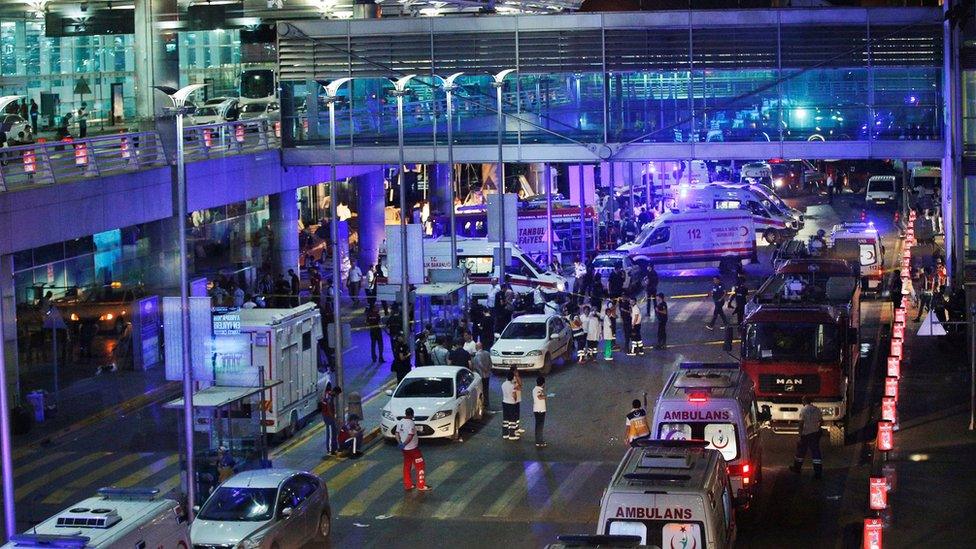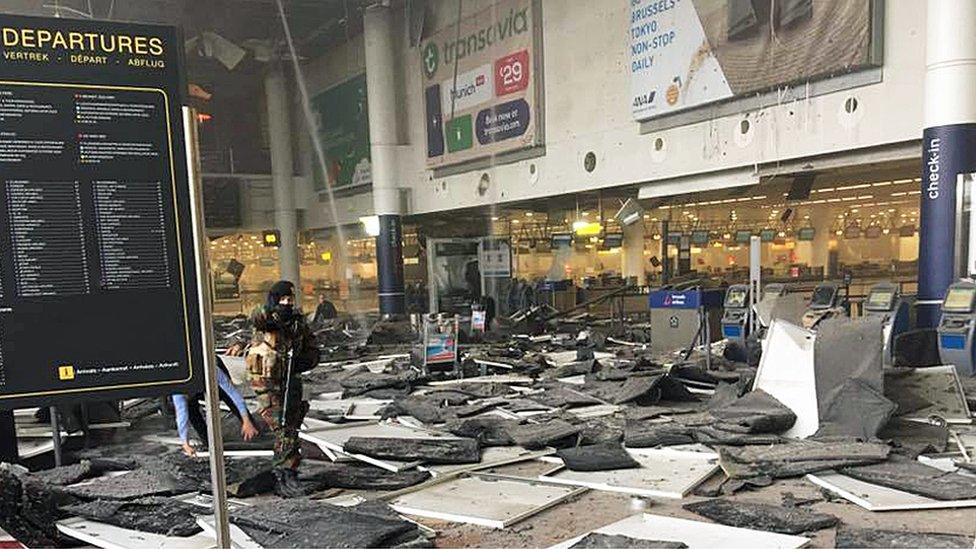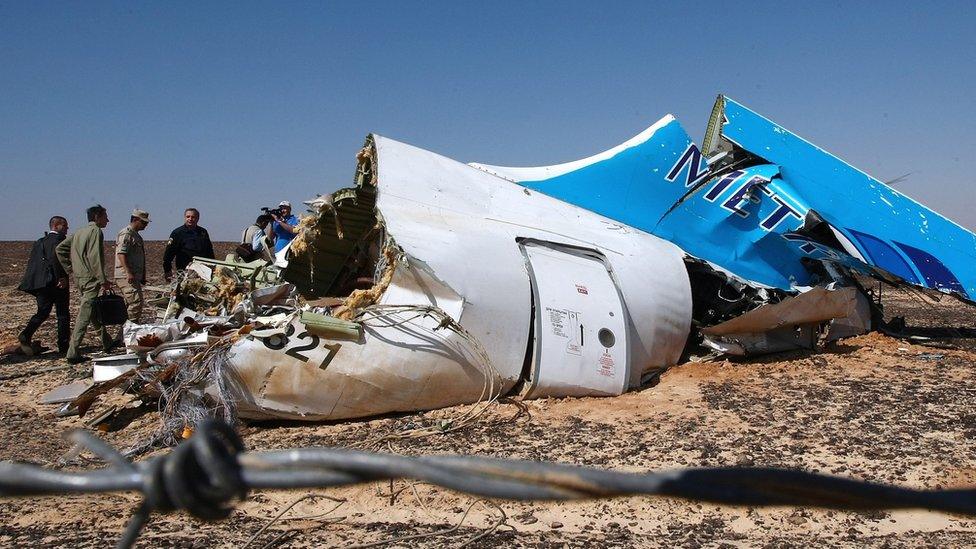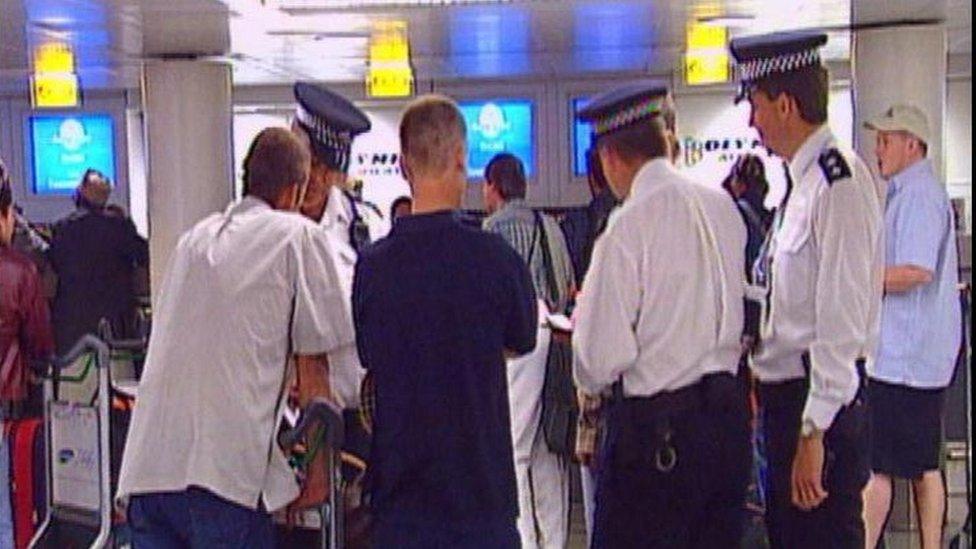Securing airports from attacks: Is it mission impossible?
- Published

Turkey's Ataturk airport is a major transportation hub
"What has changed in recent years is the suicide element. That's difficult to counter, if people are willing to blow themselves up".
These are the words of Norman Shanks, who used to run security at Britain's biggest airports.
He was in charge at Heathrow during the Lockerbie bombing., external At the time, he says they moved security checks to outside the terminal, thinking it would be safer.
But, he says, they soon realised that they were just moving the problem outside.
"If anything it was less safe, because we had large groups of passengers bunched together on pavements, which made them vulnerable".
Essentially, anywhere you get people gathering in large numbers is a target no matter how many police you have around.
So how to stop attacks on airports? Mr Shanks says the best ways are intelligence, in other words, knowing about it in advance, face recognition systems that can use CCTV to pick out suspects, and teaching staff how to identify odd behaviour.
CCTV shows people running in the terminal as an explosion hits.
For example, he says the main thing he noticed about the Brussels airport attackers was that they weren't carrying hand luggage.
"No one travels like that these days, quite the opposite." For him, that would have raised alarm bells.
Airport security has become much tighter in recent years.
We've all noticed the shoe checks and liquid limits, both of which came about after planned attacks that were foiled, one involving a bomb in a shoe and the other, liquid explosives. Scanners are better too.
But Norman Shanks says that security checks on workers should still be tighter at some airports around the world.

Airport in Brussels was one the targets of bombings earlier this year
"I'm still concerned about the insider threat," he says, "weaknesses with staff smuggling things on board," although workers across Europe are security-checked.
Even our airplane food is sealed before it reaches the airport. If the seals are broken, it's not allowed in.
I ask Mr Shanks if he feels that attackers are moving away from the actual aircraft, hijackings, bombings and towards the airports instead.
"I don't think so, it's just another opportunity." he says. "We still had the Metrojet bombing."
It's widely believed a Metrojet airliner travelling from Egypt to Russia last year was brought down by an improvised bomb.

It is still unclear what caused the MetroJet flight to crash in Egypt last year
But in some ways, he thinks that the Turkey attack was nothing to do with flying.
"I don't actually see this as an attack on aviation. They have just picked a place where people gather together, a soft target. It could be a shopping mall next time, or a railway station".
- Published29 June 2016

- Published29 June 2016

- Published22 March 2016
